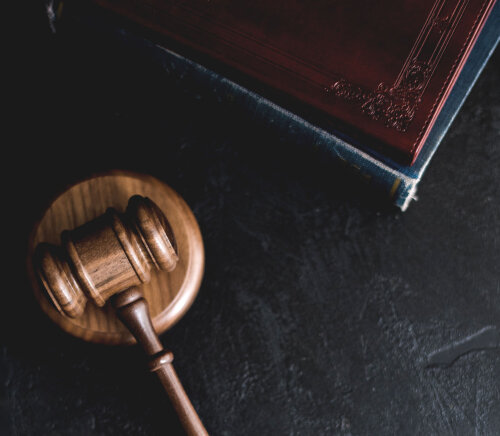Best Bankruptcy Lawyers in Kloof
Share your needs with us, get contacted by law firms.
Free. Takes 2 min.
List of the best lawyers in Kloof, South Africa
About Bankruptcy Law in Kloof, South Africa
Bankruptcy in Kloof, as in the rest of South Africa, is primarily governed by the Insolvency Act of 1936. It is a legal process where individuals who are unable to pay their debts can seek relief from some or all of their financial obligations. The proceedings help ensure fair distribution of the debtor's assets among creditors and offer an opportunity for individuals to make a fresh financial start. Given Kloof's position within South Africa's jurisdiction, the same national laws apply, although local practices and procedures might vary slightly based on specific court preferences and local legal infrastructure.
Why You May Need a Lawyer
Engaging a lawyer is crucial in navigating the intricate landscape of bankruptcy law. Legal assistance is recommended in situations such as:
- Accumulating debts that you cannot manage, leading to creditor harassment or legal action.
- Facing repossession of assets like homes or vehicles.
- Needing to evaluate eligibility for bankruptcy and understanding the implications.
- Drafting and submitting necessary documentation for bankruptcy proceedings.
- Negotiating debt restructuring plans or settlements with creditors.
- Requiring representation in court during bankruptcy hearings.
- Understanding the impact of bankruptcy on personal financial standing and credit ratings.
Local Laws Overview
The key elements of bankruptcy law in Kloof, reflective of the broader South African legal framework, include:
- Voluntary Surrender: Debtors can voluntarily seek bankruptcy by proving insolvency and demonstrating that their liabilities exceed their assets.
- Sequestration: Involuntary bankruptcy proceedings initiated by a creditor, where the court appoints a trustee to manage the debtor's estate.
- Advantages for Creditors: The debtor’s estate is distributed among creditors, providing some relief from financial loss through the equitable division of proceeds from asset liquidation.
- Rehabilitation: Following successful sequestration, debtors can apply for rehabilitation to regain financial independence and be released from residual debts.
- Discharge of Debts: While bankruptcy offers relief, not all debts can be discharged; for example, certain taxes may still be owed.
Frequently Asked Questions
What is the difference between sequestration and voluntary surrender in South Africa?
Sequestration involves a creditor filing for the debtor’s bankruptcy, whereas voluntary surrender is initiated by the debtor themselves to declare insolvency.
Can creditors still contact me after I've declared bankruptcy?
Once bankruptcy is declared, an automatic stay prevents creditors from continuing collection efforts, giving debtors relief from harassment and lawsuits.
How long does bankruptcy affect my credit report?
Bankruptcy can remain on a credit report for up to ten years, affecting creditworthiness and the ability to secure new credit opportunities.
Can I keep any of my property after declaring bankruptcy?
Some personal property might be exempt from liquidation, depending on its value and necessity, as allowed under South African bankruptcy laws.
What is the role of a trustee in bankruptcy?
A trustee is appointed to oversee the administration of the bankrupt estate, ensuring fair asset distribution and compliance with legal obligations.
How long does the bankruptcy process take in Kloof, South Africa?
The timeline can vary; however, from filing to completion, the process can take several months to years, depending on the complexity of the estate and completion of required court proceedings.
Is it possible to reverse a bankruptcy filing?
Under certain conditions, such as evidence of fraud or other legal irregularities, a court may reverse or annul a bankruptcy.
What are the costs involved in filing for bankruptcy?
Costs include court fees, trustee fees, and potentially legal fees for representation and advice, varying by the complexity and length of the proceedings.
Will all my debts be erased after bankruptcy?
Bankruptcy can discharge many unsecured debts, but certain obligations, like alimony, child support, and specific taxes, may still need to be paid.
Can I file for bankruptcy multiple times?
While possible, repeating bankruptcy filings are subject to stricter scrutiny, and the court may impose additional requirements or limitations.
Additional Resources
For those seeking further guidance, the following resources may be helpful:
- The Master’s Office: Offers advice and the forms required for declaring bankruptcy.
- Legal Aid South Africa: Provides legal advice and assistance for those unable to afford private legal services.
- National Credit Regulator (NCR): Offers information on credit rights and obligations.
- Consumer Financial Protection Bureau: Provides resources for understanding financial management post-bankruptcy.
Next Steps
If you are considering bankruptcy or require legal assistance, follow these steps:
- Evaluate your financial situation thoroughly with a financial advisor or credit counselor.
- Consult with a qualified bankruptcy lawyer in Kloof to explore your options and determine eligibility.
- Gather necessary financial documents such as asset lists, debts, income statements, and liabilities.
- Schedule a consultation to discuss the potential impact and outcomes of filing for bankruptcy.
- Proceed with filing the necessary documentation with legal assistance, ensuring compliance with relevant court procedures.
- Attend court hearings and comply with the terms set out by the trustee and bankruptcy court.
Lawzana helps you find the best lawyers and law firms in Kloof through a curated and pre-screened list of qualified legal professionals. Our platform offers rankings and detailed profiles of attorneys and law firms, allowing you to compare based on practice areas, including Bankruptcy, experience, and client feedback.
Each profile includes a description of the firm's areas of practice, client reviews, team members and partners, year of establishment, spoken languages, office locations, contact information, social media presence, and any published articles or resources. Most firms on our platform speak English and are experienced in both local and international legal matters.
Get a quote from top-rated law firms in Kloof, South Africa — quickly, securely, and without unnecessary hassle.
Disclaimer:
The information provided on this page is for general informational purposes only and does not constitute legal advice. While we strive to ensure the accuracy and relevance of the content, legal information may change over time, and interpretations of the law can vary. You should always consult with a qualified legal professional for advice specific to your situation.
We disclaim all liability for actions taken or not taken based on the content of this page. If you believe any information is incorrect or outdated, please contact us, and we will review and update it where appropriate.









